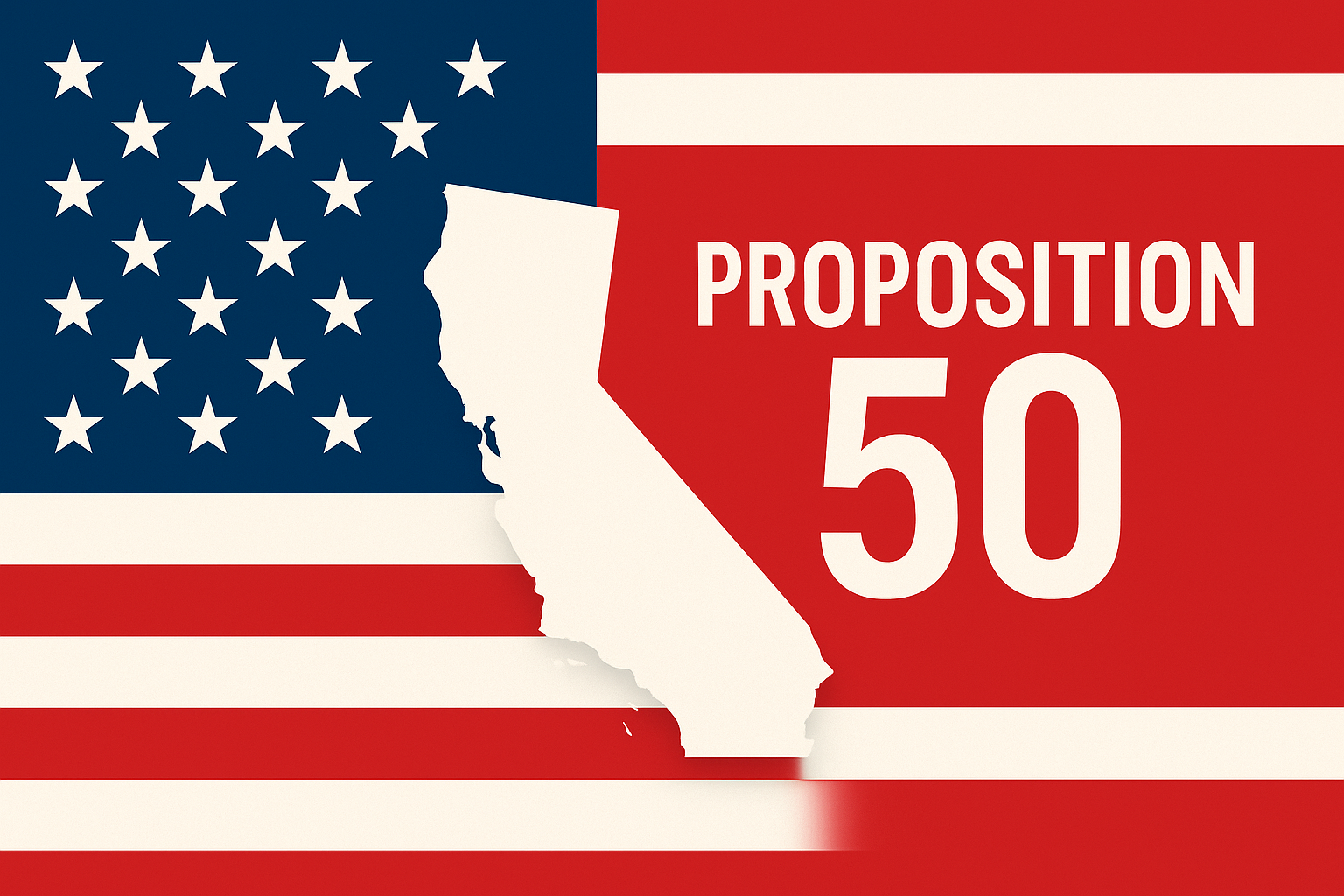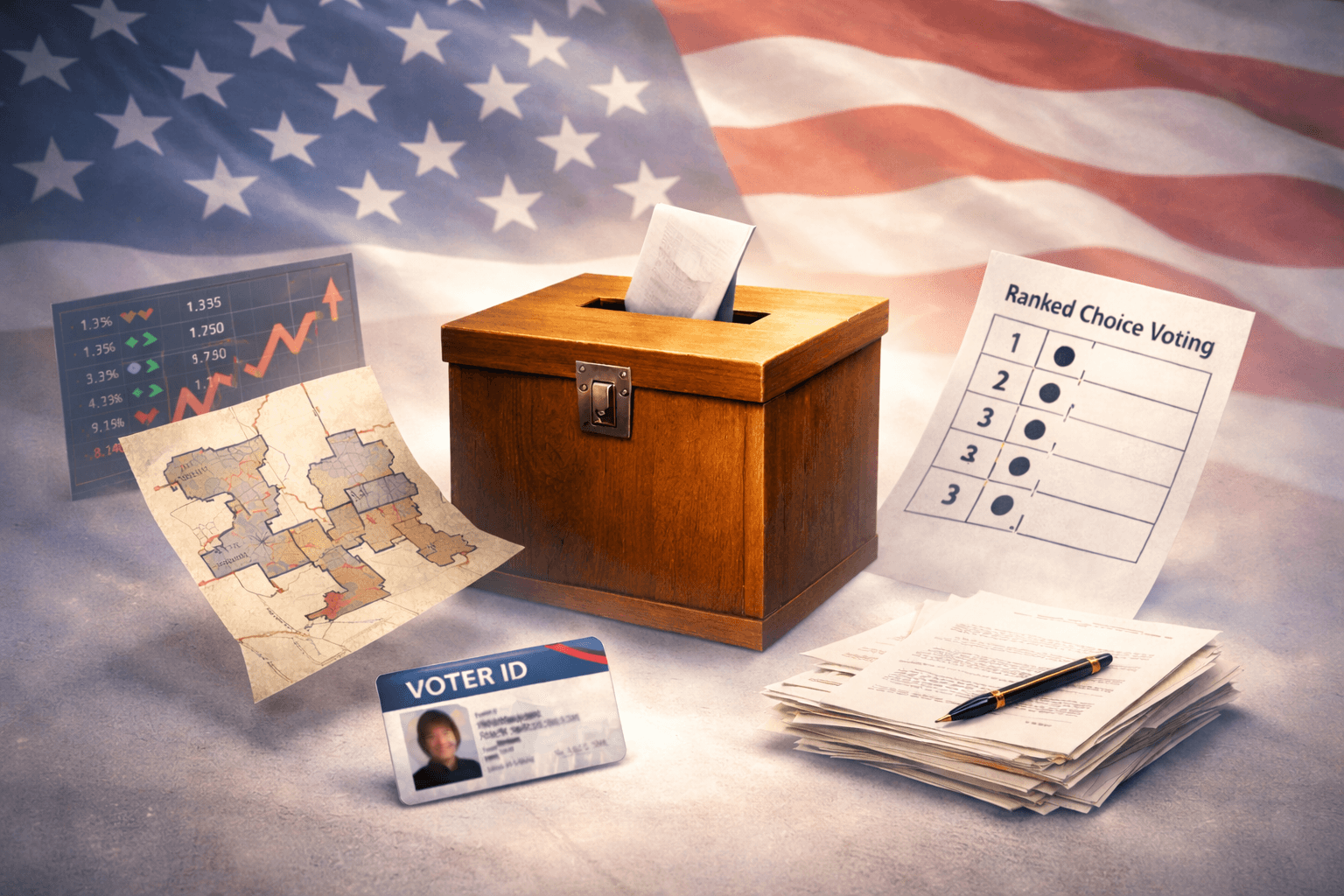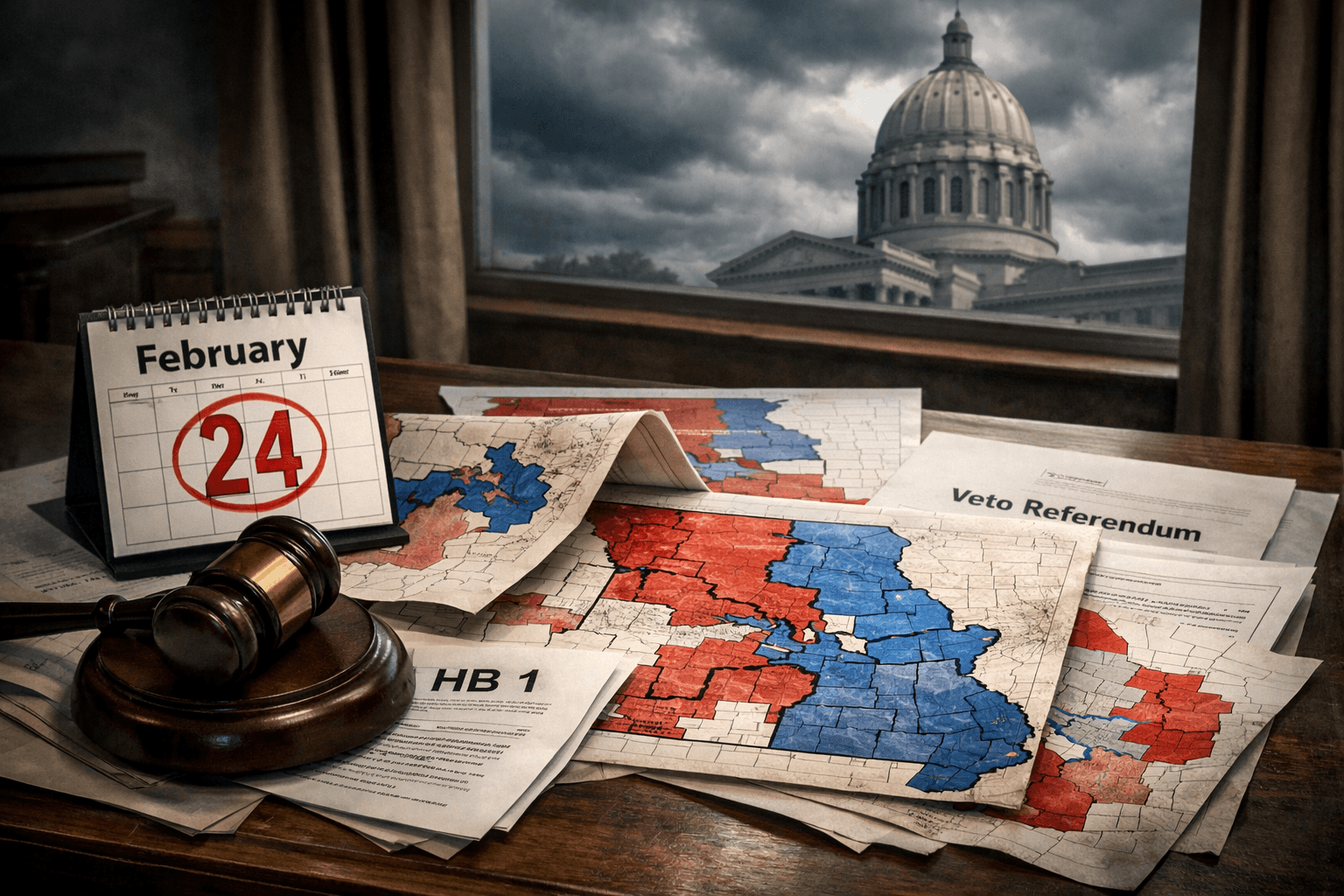EXCLUSIVE: California Commissioner Says Lawmakers Gutted Their Funding BEFORE Prop 50

The fate of California’s independently drawn congressional districts will be decided on November 4, when voters weigh in on a legislative gerrymander and the suspension of congressional maps from the state's independent Citizens Redistricting Commission (CRC) under Proposition 50.
However, in a September 26 CRC meeting, Commissioner J. Ray Kennedy, Ph.D, said that lawmakers had already starved “them of the funding they need to carry out their work.”
Not only has all of this been schemed up without the commission’s input, without even the courtesy of formal notice to the commission, but the state’s budget constraints on the commission have prevented it from convening until now to discuss our response,” Kennedy said.

The CRC is an independent body composed of 14 members meant to represent the diversity of California’s population, including its political diversity. The commission includes members from both Republican and Democratic Parties, as well as independents.
Notably, Commissioner Kennedy is a Democratic member.
Since the CRC is intended to operate outside partisan politics, it did not issue an official statement for or against Prop 50. It had no involvement in the legislative redistricting effort proposed by Gov. Gavin Newsom and carried out by the Democratic majority in the legislature.
However, this does not mean individual commissioners are barred from expressing their own personal views. The CRC stated:
“Individual commissioners are free to exercise their First Amendment right to free speech and may express their personal views on the current redistricting proposal. Such comments are solely those of individual commissioners and do not represent the official position of the Commission.”
Kennedy reached out to IVN News exclusively with his remarks.
Governor Newsom has pitched Prop 50 as a temporary counterpunch to Trump and GOP maneuvering to rig congressional maps in Texas and other states to protect their party’s razor-thin majority in Congress.
The governor says he actually supports independent redistricting. To bolster his claim, Prop 50 includes some vague and undefined language about enacting state policy that encourages independent redistricting nationally.
But are Californians aware that state lawmakers already cut the CRC’s funding? Are they aware that the commission was downsized two years ago? Are they aware that the state attorney general refused to advise commissioners on their rights and obligations as it pertains to Prop 50?
Yet, the attorney general is supposed to be the CRC’s official legal counsel.
“We have been told that we have no standing to defend our maps against their actions because the governor and his colleagues are not directly challenging our maps,” Kennedy said. It’s a technicality since that is what Prop 50 does, but it’s put before voters, not the courts.
“Governor Newsom and his colleagues have suddenly come up with a way to challenge our maps without saying they’re ‘challenging’ them, setting them aside without saying they’re ‘setting them aside,’ suspending them without saying they’re ‘suspending’ them,” he explained.
But that is indeed the reality of what is proposed.”
Kennedy Says CRC Saved California $4 Million – And Still Got the Ax
In 2024, Commissioner Kennedy penned an op-ed in the Sacramento Bee, in which he discussed how state lawmakers had downsized the CRC based on the Department of Finance's report to the legislature, which stated that the commission's work was completed after it approved new maps in 2021.
Kennedy explained that this isn’t the only responsibility of the CRC. He wrote that the commission’s mandate extends to working with the legislature to improve the redistricting process, including recommending statutes and amendments that affect the CRC.
“After we completed our maps, it was our understanding that we would have funding for four meetings a year; yet, since July of 2023, we have had funding for only one meeting per year (with no funding for any preparatory work for that one meeting),” he wrote.
Kennedy added that this is “impeding our ability to discuss the remaining recommendations and finalize concrete proposals to the Legislature for timely debate and adoption.”
The California Citizens Redistricting Commission is unlike most other state commissions: The commissioners are the executive decision makers; decisions on matters such as hiring need to be taken by a vote of the full commission. We recently lost our only staff member, along with a significant amount of institutional memory and technical skills required for the maintenance of our website and data collections, due to budget cuts. Those same budget cuts now impede us from meeting to discuss how to move forward.”
The current commission, established in 2020, is only the second iteration of the CRC. Yet, it was able to approve the current legislative and congressional maps unanimously in December 2021 – meaning all Democrats, Republicans, and independents on the commission.
To clarify, 9 commissioners are needed to approve new maps.
Kennedy remarked in his op-ed and during the September 26 meeting that the maps were never challenged – and as a result, the commission has saved the state an estimated $4 million in legal fees alone.
This commission has demonstrated how a highly transparent, voter-focused redistricting process – led by citizens broadly reflecting the diversity of our state [...] and engaging tens of thousands of Californians along the way – can produce fair maps,” he remarked.
Some political commentators have noted that in the 2024 presidential election, President Donald Trump received 38.33% of the vote, yet Republicans hold only about 17% of California’s congressional seats.
This implies that the CRC still has work to do to create the fairest maps possible.
Something to consider: Registered Republicans make up about a quarter of the voting population in California, meaning the extra gains the party makes in statewide contests, like a presidential election, come from independent voters who may not always vote Republican.
After all, Trump received approximately 34% of the vote in California in 2020, in an election that had a higher turnout.
Despite holding only 17% of the state’s congressional delegation, the Republican Party of California never challenged the maps that Republicans on the CRC voted to approve. However, the GOP is attempting to block Prop 50, which aims to reduce its representation in Congress by half.
These legal challenges include an injunction sought by Republican gubernatorial candidate Steve Hilton. None of these challenges have been successful.
Kennedy: Prop 50 Turns Independent Redistricting Into an ‘Illusion’
Gov. Newsom has promoted the need for Prop 50 to ensure everyone in the country is playing by the same rules: If Republicans in Texas redraw their maps mid-cycle, Democrats in California should be allowed to do the same.
It is about fairness, he claims.
Newsom has also talked about the need to “fight fire with fire” and argues that “Californians have been uniquely targeted by Trump.”
Recent polling suggests that this approach – making Prop 50 a referendum on Trump – may be working with enough Californians to pass the measure. But Commissioner Kennedy warns that this campaign could wind up backfiring on Newsom and the Democratic Party.
“The governor also spoke of moral clarity and moral authority, yet his proposal is to go low because the other side is going low,” he said.
Is that really an exercise of moral clarity? Is that really going to convince voters in the future that they can trust anyone in a position of power? Or will it simply turn more people off to politics?”
Commissioner Kennedy added that Newsom’s approach and what voters have been hearing from President Trump are "eerily similar." They both assert, “I alone can fix this.”
“But then, does it even need to be fixed? To my mind, this is yet another manufactured emergency,” Kennedy said.
First, the Administration’s effort to squeeze more seats out of Texas might well backfire, as a similar mid-cycle redistricting there did twenty-some years ago. Second, mid-term election losses for the party in the White House, which are normal in American politics, could be even bigger in 2026.”
He cited a newsletter from Princeton’s Electoral Innovation Lab that said, “the median swing in a midterm election is 13 seats, and forecaster Elliott Morris now thinks a swing of 20 seats, or more is likely.”
California voters approved independent redistricting for legislative maps in 2008 and then congressional maps in 2010. The statement of reasons for what was titled the Voters First Act for Congress included:
Allowing politicians to draw these districts, to make them safe for incumbents, or to tailor the districts for the election of themselves or their friends, or to bar the districts to the election of their adversaries, is a serious abuse that harms voters.”
The question is: What message does Prop 50 actually send when the governor and legislature decide on a whim that they need to take control of the redistricting process? Is this the last time they will claim the need to “fight fire with fire”?
Kennedy believes the precedent set by it and by the state’s actions against the CRC already “have shown us that independent citizen redistricting may have always been, in some ways at least, an illusion.”
If politicians can step in to draw their own maps whenever they want and then ask the voters to approve them, how much true power did we have in the first place? What is to stop them from doing the same thing ten years from now in the middle of the next cycle?”
The same polls that show a majority of voters support Prop 50 also indicate that they still support independent redistricting by a much greater number. But as Kennedy noted in his remarks, the impetus for Prop 50 was not the citizenry, but politicians who were told not to gerrymander California anymore.
“Those politicians did not have the power to draw new maps, and yet they did and are now asking the state’s voters to endorse their action,” he said.
 Shawn Griffiths
Shawn Griffiths







